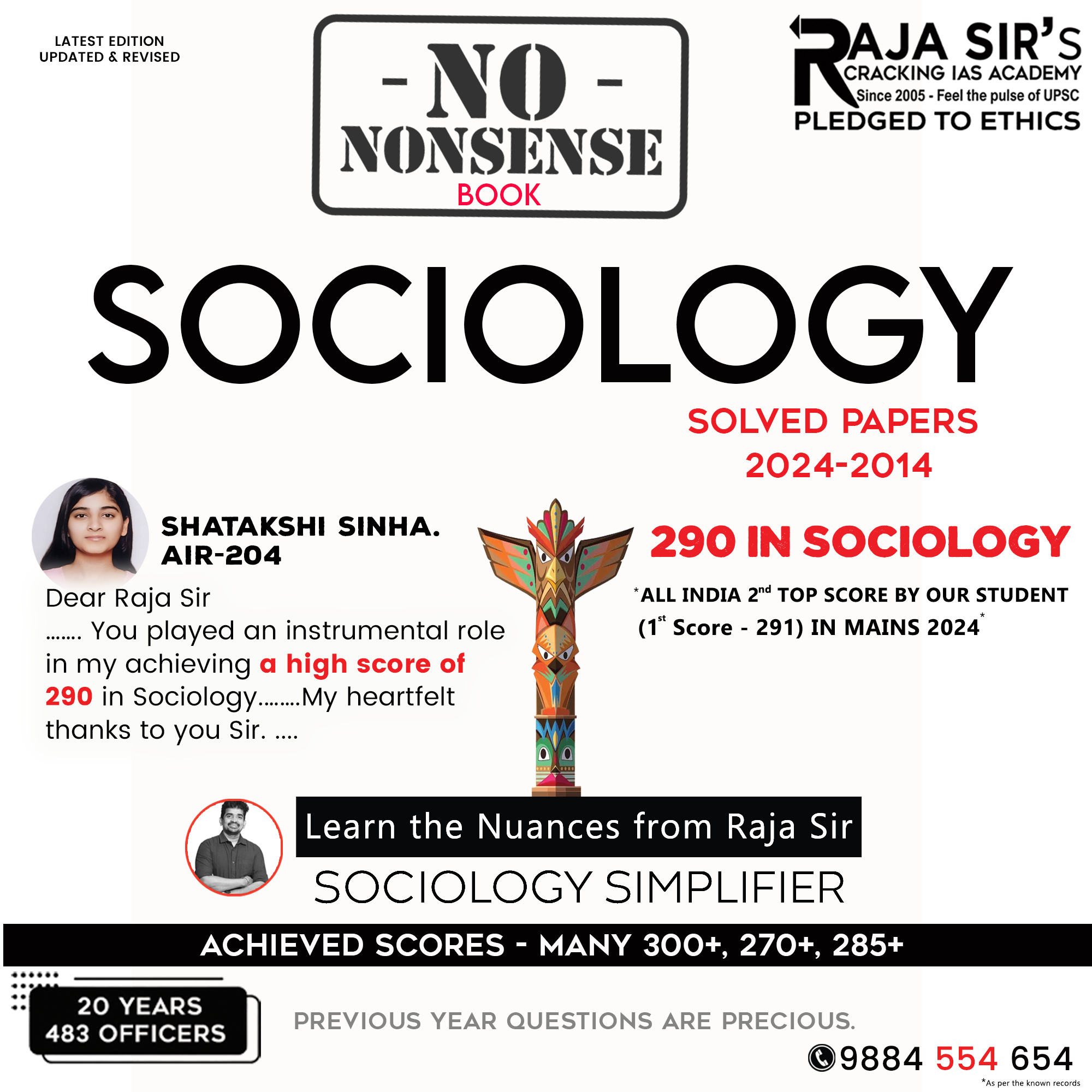- Home
- Prelims
- Mains
- Current Affairs
- Study Materials
- Test Series
Can Merton's reference group theory be relevant in understanding identity making in the digital world?. (UPSC CSE Mains 2025- Sociology, Paper 1) 10 Marks

Merton proposed that individuals evaluate themselves and shape their attitudes, aspirations, and behavior by comparing themselves with reference groups – groups to which they belong (membership groups) or aspire to belong (non-membership/aspirational groups). Two main functions of reference groups are:
- Normative function – providing values, norms, and standards of behavior.
- Comparative function – serving as a yardstick for self-evaluation and identity.
Digital World and Identity-Making
Virtual Reference Groups
- Online platforms like Instagram, Reddit, or LinkedIn allow users to affiliate with or aspire to groups they may never physically encounter.
- Influencers, fandoms, professional networks, and niche communities become reference points for identity, lifestyle, and values.
Aspirational Identity
- Users often curate their digital personas based on the norms and aesthetics of aspirational groups—fitness communities, fashion icons, tech innovators, etc.
- This mirrors Merton’s idea of non-membership reference groups that influence behavior and self-concept.

Normative Pressures
- Social media amplifies normative expectations—likes, shares, and comments become feedback mechanisms that reinforce group norms.
- Individuals adjust their online behavior to align with the perceived standards of their reference groups.
Multiple and Fluid Identities
- The digital world allows people to belong to multiple reference groups simultaneously—a gamer, a climate activist, a startup founder—all within different platforms.
- Identity becomes fluid and performative, shaped by the norms of each digital space.
Echo Chambers and Identity Reinforcement
- Algorithms often reinforce exposure to like-minded groups, creating echo chambers that intensify group norms and solidify identity.
- This can lead to polarization or deepened affiliation with specific ideologies or lifestyles.
Merton’s reference group theory provides a strong lens to understand identity-making in the digital world. Social media and digital platforms amplify the normative and comparative functions of reference groups by making aspirational lifestyles and peer comparisons constantly visible. While this fosters creativity and global identities, it also risks alienation and identity fragmentation. Thus, digital identity-making is best seen as an extension of Merton’s reference group processes, but accelerated and complicated by digital technologies.










 Latest News
Latest News
 General Studies
General Studies